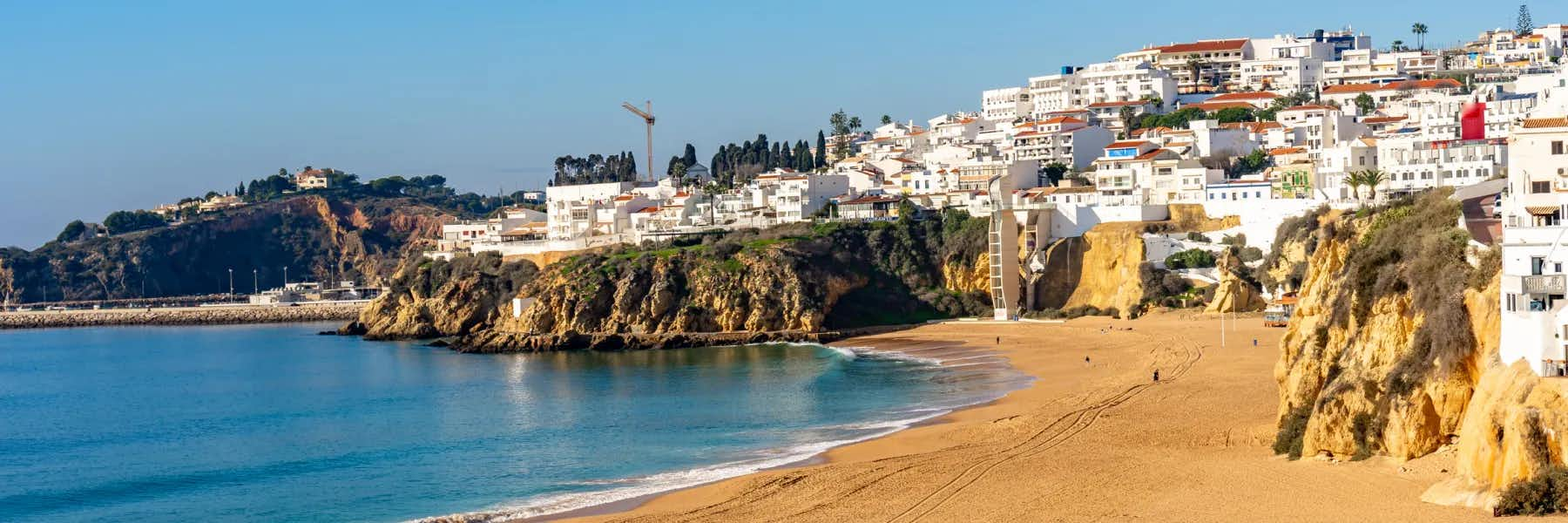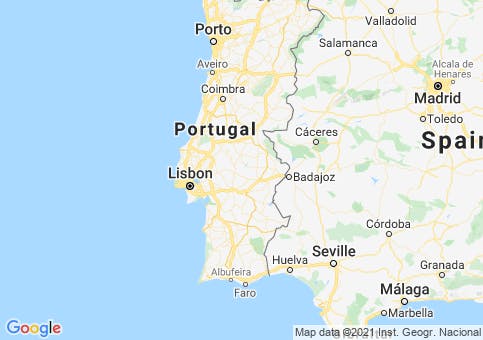Real estate in Portugal is among the lowest-cost in Europe. In popular coastal areas, such as the Algarve, many buy property as an investment, either to rent out all the time or to rent out when the owner is not using it. If you plan to buy a property for personal use—especially if you plan to live in it full-time—it’s advisable to go in person to view a property before purchase.
First Things First
You must acquire a tax identification number (Número de Identificação Fiscal [NIF], also known as your número de contribuinte) if you intend to live in Portugal for any length of time. This is mandatory for business transactions of any kind in the country. The process of getting your NIF is not complicated but it must be done prior to your move to Portugal. There are services online that can help with the application from your home country, or it can be done on your scouting trip with the help of a lawyer, tax professional, or other facilitator. A great source of information can be the many Facebook groups pertaining to Portugal. One such group is called American & Friends PT, which offers a “files” section with PDF documents on various topics that are continually updated by expats who already live in the country.
Repos
The economy in Portugal has been undergoing positive changes, but one thing you can count on is that some of the best real estate deals involve properties owned by a bank, imóveis da banca.
Just as you would with the purchase of any property, you need to investigate every detail possible with respect to a “fire sale” item. Make sure you understand the Portuguese words describing the home or land and ally yourself with an English-speaking professional before you think about making an offer and signing papers.
Investment Purchases
Maybe you don’t plan to live in a house you find and are interested merely in investing. Even if that’s the case, it’s important to view properties in person. Nothing can replace the real, live impressions that come from seeing a place “in the flesh,” so to speak; until then it’s just an impersonal listing.
If you do purchase for investment and rent out the property, you’ll owe taxes on the rental income. As always, it is important to get the proper financial and legal advice for your personal situation.
It is generally not a good idea to buy with the intent of extensive renovation or construction unless you have experience in Portugal and a decent command of the language. The permitting, licensing, and contracting process is burdensome even to the Portuguese. It will take three times longer than the estimate for a given project. It will cost more than expected and be difficult to find and retain reliable contractors and tradesmen. In our first rental, the homeowner was renovating and extending a property next door for future rental potential. After two years, the project was still not done, and she was Portuguese with a reliable construction crew and plenty of local resources for help.
Get Your Free Portugal Report Today!
Get Your Free Portugal Report Today!
Discover why we love a slower pace of life in Portugal and info on other European countries in our daily postcard e-letter. Simply enter your email address below and we’ll send you a FREE REPORT – Explore the Old World in Laidback Portugal.

By submitting your email address, you will receive a free subscription to IL Postcards, Overseas Dream Home, The Untourist Daily and special offers from International Living and our affiliates. You can unsubscribe at any time, and we encourage you to read more about our Privacy Policy.
Mortgages
It’s possible to borrow up to 70% of the asking price or 70% of the valuation or avaliação—85% if you are Portuguese—on a property. This varies between banks and Schengen and non-Schengen Area purchasers. So, shop around to see which bank is offering the best terms for your situation. As the economy improves, lenders are becoming more accommodating. Depending on your financial circumstances and age, it might be possible to get a 90% loan-to-value mortgage.
Real estate agencies deal with Portuguese, Spanish, and British banks. Terms are available for a mortgage of up to 40 years for buyers, depending on the age at the time of taking out the mortgage. Generally, it is the number of years between the purchaser’s age and 75 years old.
Due Diligence
While hopefully you will not fall victim to a scam, it pays to be careful. If you’re a super-trusting soul, just Google “real estate scams” and you’ll quickly find enough horror stories to encourage you to do due diligence. If you are using a bank to obtain a mortgage, they will do most of this for you, as it is in their interest. If you are arranging your purchase without a bank, make sure to have a property attorney protect your interests.
Here are some things to consider:
Does the seller have the legal right to sell the property in question? Many older properties can have several heirs as owners. All of them need to approve any transaction.
Are there any outstanding debts or liens against the property? The law of subrogation in Portugal results in all mortgages, taxes, community charges, utility bills, etc., remaining with the property for sale and therefore inherited by the purchaser. Secure a certidão de registro from the local land registry to get the answer to this and the prior point. This is the time to find out if there’s extra baggage that comes with your dream home.
Are you clear on what the ongoing costs will be once you are the new owner? Request a paid receipt for the latest year’s property taxes.
The same applies for latest receipts for water, electricity, telephone, etc. Remember the law of subrogation.
Was the house built or added onto without planning permission? This is very common in Portugal, especially the adding onto. Ask your bank or legal representative to confirm that you will have no problems going forward.
Was it built on properly zoned land?
Is the infrastructure solid? The avaliação (valuation) will not necessarily evaluate the condition of the construction. You may want a civil engineer to look at the property if you have any suspicions.
Properties are rated with energy-efficiency certificates. Ask to see the one for the property you are considering. Even if a house seems like a bargain, if it’s rated a “D” instead of an “A” or “B,” you’ll be eroding your savings in monthly utility bills.
Are you thinking about “buying off”? For example, if you’re interested in a partially built property, secure an insurance policy or banker’s “termination” guarantee from the builder to ensure you are protected in the event the company goes bankrupt before construction is completed.
Whether it’s a buy-off or you are simply considering renovation on a finished property, are you being realistic about both the costs and the time involved? The time for any construction project anywhere is always an underestimation of the actual time needed. In Portugal this may be doubly so due to bureaucratic and legal issues, and a general practice among contractors of interweaving multiple projects in a way that is less than efficient for any one of them to be completed on time.
If you’re buying a condo or apartment, ask for a copy of the homeowner association’s statutes and a paid receipt for the latest HOA charges.
Representation
Two other things to remember: First, you should deal only with a government-registered real estate agent (mediador autorizado), and second, that agent represents the seller of the property and therefore has the interests of the owner foremost in his or her mind. It’s a bonus if they are pleasant and easy to deal with, but don’t forget you need someone in your corner to represent your needs.
Even if you are confident in your negotiation abilities and research techniques (maybe you’re an attorney or a real estate agent yourself), remember the language factor. Seek legal advice in a language in which you are fluent from an independent attorney who is versed in Portuguese property law.
That person will guide you through the steps of signing a promissory contract (contrato de promessa de compra e venda) and then the actual purchase contract (escritura de compra e venda), when you will pay the balance owing after your initial deposit and receive your keys.
A Word About Notaries
Notaries in Portugal are required to have a law degree. They represent the state and the truth, not an individual, in a legal transaction, and one will most likely be present at the signing of each of the contratos referred to above. While it is possible to avoid the cost of one (typically about 2.5% of the purchase price), it is unusual and not advisable.
Once the transaction is completed, make sure the deed (escritura) is registered as soon as possible. Welcome to your new home!
Get Your Free Portugal Report Today!
Get Your Free Portugal Report Today!
Discover why we love a slower pace of life in Portugal and info on other European countries in our daily postcard e-letter. Simply enter your email address below and we’ll send you a FREE REPORT – Explore the Old World in Laidback Portugal.

By submitting your email address, you will receive a free subscription to IL Postcards, Overseas Dream Home, The Untourist Daily and special offers from International Living and our affiliates. You can unsubscribe at any time, and we encourage you to read more about our Privacy Policy.












